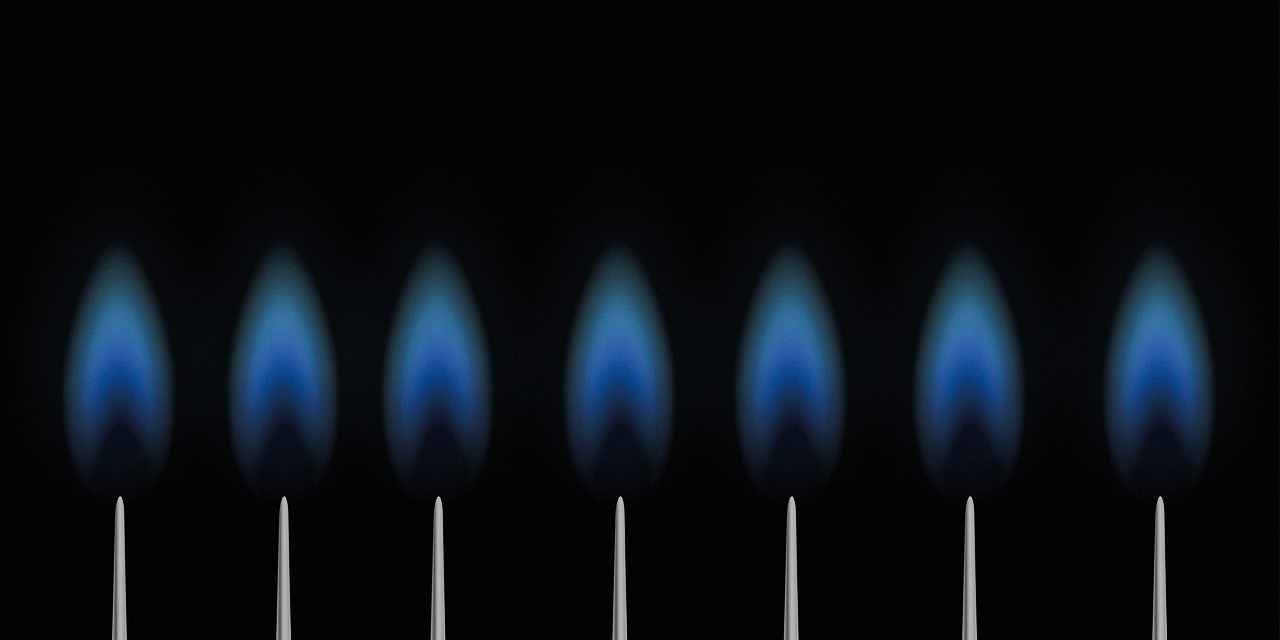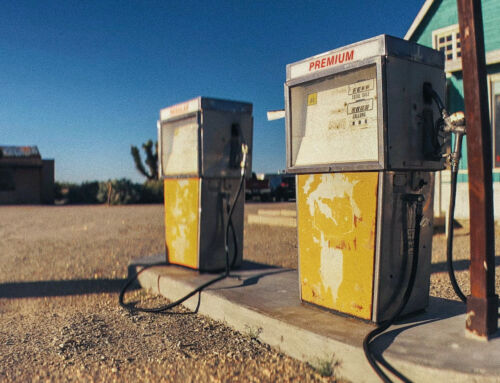View by Topic
Recent Articles
-
Congress Blocks California’s Gasoline Car BanSaturday, May 31st, 2025
-
EPA Will Keep Current Limits for “Forever Chemicals” in Drinking WaterSaturday, May 24th, 2025
-
Court Indefinitely Pauses SEC Climate Rule LitigationSaturday, May 17th, 2025
-
Maryland is About to Regulate Mold But is the Cart Before the HorseSaturday, May 10th, 2025
View by Month/Year
“Green Building Law Update” Headlines
Recent Articles & News from
Stuart Kaplow’s blog
at GreenBuildingLawUpdate.com
- EPA Will Keep Current Limits for “Forever Chemicals” in Drinking Water May 25, 2025
- Court Indefinitely Pauses SEC Climate Rule Litigation May 18, 2025
- Maryland is About to Regulate Mold: But is the Cart Before the Horse? May 11, 2025
- BEPS Redux: The Most Far Reaching Environmental Legislation of the 2025 Maryland General Assembly May 4, 2025
Subscribe to the Green Building Law Update!
Stuart Kaplow brings his expertise and extensive experience to the table with his unique digital publication, "Green Building Law Update". Subscribers receive regular updates to keep them informed about important issues surrounding Environmental Law, Green Building & Real Estate Law, as well as the emerging demand for Environmental Social Governance (ESG).
Get fresh content through the lense of Stuart Kaplow's cutting-edge expertise, innovative commentary and insider perspective. Don't miss another issue! Subscribe below.

Lawsuit Challenges D.C. Gas Appliance Ban and Net Zero Building Code
A lawsuit worthy of attention has been filed seeking to halt the implementation of Washington D.C.’s gas appliance ban and net zero building code. That complaint is nearly identical to the litigation commenced on the same day last week against Montgomery County, Maryland seeking to stop that State’s largest county from implementing its gas appliance ban.
Those who see this as a “not my chicken” moment are not correct; this is not someone else’s problem. These lawsuits are part of a groundswell from Berkeley, California to Denver, Colorado, and now, Washington, D.C., of what are dramatic legal confrontations over wrongheaded environmental regulation and illegal energy policy by governments behaving badly in the face of climate change.
The lawsuits aver that these bans are more than just poorly executed public policy; they are part of a broader trend that plaintiffs allege is an overreach of governmental power. With similar lawsuits nationwide groups are rallying around what they see as a pattern of unlawful environmental government actions that ignores consumer choice and violates longstanding federal energy statutes.
The nearly identical collation of plaintiffs in the two lawsuits, the National Association of Home Builders of the United States, Restaurant Law Center, National Apartment Association, Maryland Building Industry Association, Washington Gas Light Company, Philadelphia Baltimore Washington Laborers’ District Council, and Teamsters Local 96 are in this case seeking declaratory and injunctive relief against enforcement of the Clean Energy DC Building Code Amendment Act of 2022.
Key Elements of the D.C. Appliance Ban
The D.C. Appliance Ban prohibits the use of gas appliances in newly constructed or substantially improved existing commercial buildings (including residences over three stories) that may be mixed use structures, restaurants, apartment buildings, hotels, condos, or houses.
For those buildings, D.C. law requires the mayor to issue, by December 31, 2026, at the latest, “final regulations requiring all new construction or substantial improvements of covered buildings to be constructed to a net-zero-energy standard.”
The D.C. definition of “net-zero-energy standard” includes that “[o]n-site fuel combustion shall not be permitted for the provision of thermal energy to the building.” This prohibits the use of gas appliances, which necessarily rely upon fuel combustion in their energy use.
If the mayor does not adopt net zero energy standard regulations by December 31, 2026, “no building permit application submitted after December 31, 2026, shall be approved unless the building design complies with the most recent version of Appendix Z of the DC Energy Conservation Code. Under Appendix Z, “[o]n-site combustion of fossil fuels shall not be permitted for the provision of thermal energy to the building”. This again prohibits the use of gas appliances.
As a result, the use of gas appliances (from residential hot water heaters to commercial kitchen stoves, and more ..) will be banned in covered buildings in the District after December 31, 2026, at the latest, regardless of whether the mayor promulgates net zero energy standard regulations.
Constitutional Preemption by the Federal EPCA
This federal court complaint counters that flawed local law, .. “[b]ut the Energy Policy and Conservation Act of 1975 as amended (“EPCA”), already regulates the energy use of such appliances and expressly and broadly preempts state and local laws on that subject. The D.C. Appliance Ban falls within the heartland of EPCA’s express preemption provision because it too purports to regulate the energy use of gas appliances, by preventing such use entirely. As such, the D.C. Appliance Ban is preempted by EPCA and unenforceable as a matter of law.”
We blogged about the Ninth Circuit’s invalidation of the City of Berkeley’s prohibition on gas piping in new buildings twice, in two federal appellate decisions just last year is particularly noteworthy since it struck down this same kind of attack on gas appliances. Perhaps most notable is that the unanimous Ninth Circuit panel emphasized that “EPCA would no doubt preempt an ordinance that directly prohibits the use of covered natural gas appliances in new buildings.” Because the D.C. Appliance Ban does exactly that, there is “no doubt” that EPCA preempts it.
Implications Beyond D.C.
We blogged last week about the lawsuit against Montgomery County seeking a permanent injunctive against enforcement of Montgomery County Bill 13-22: Buildings – Comprehensive Building Decarbonization, which bans the use of gas appliances in new construction.
Those plaintiffs, substantially the same group of trade associations, companies, and unions as in the D.C. lawsuit are part of a nationwide movement of groups challenging crushing climate regulations. This litigation is taking aim at wrongheaded and often illegal attempts by state and local governments to address admittedly widely acknowledged environmental matters.
In this instance, the D.C. Appliance Ban, plainly preempted by EPCA, “is already inflicting substantial irreparable harm on Plaintiffs and their members.”
Such is also true for Maryland’s proposed statewide BEPS with its rationing of electricity and ban on natural gas, even in existing buildings, where it must be assumed if the state legislature does not step in, the courts will. Marylanders and an increasing number of citizens across the country are already unhappy about high electric utility prices brought on by poorly implemented greenhouse gas public policies and attempted actions by state and local authorities to ration energy in the name of reducing greenhouse gas emissions are not just wrongheaded, but they will be found preempted by federal law and as such void.
Conclusion
While the attorneys we have consulted suggest the outcome of this D.C. lawsuit is all but certain, the breadth of any final judicial redress may well have lasting impacts across the country on state and local governments’ abilities to establish building codes in line with climate goals, especially as a growing number of U.S. cities push for all electric buildings.
Supporters of net zero mandates argue that direct action, now, is justified to reduce carbon emissions and combat climate change while opponents are concerned over denigrating the current way of doing things before there is a replacement.
These legal battles underscore the increasing complexity of energy policy in the U.S. and the ongoing tension between environmental goals and regulatory boundaries. As more local governments pursue net zero and decarbonization laws, they will find themselves navigating this intricate landscape of federal preemption, consumer demand, and economic impact, with significant implications for the future of American energy use and climate policy. Many would support the aims of the D.C. code amendment but believe this is the wrong way to go about it.









